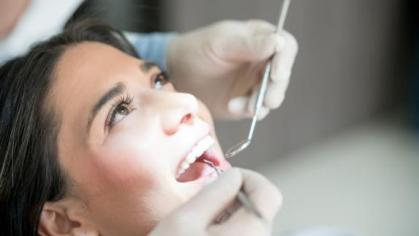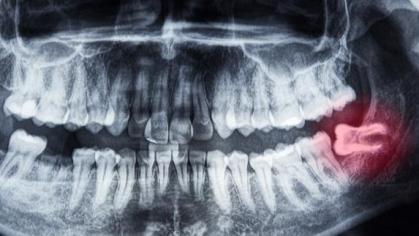Diagnosis of Canker Sores, Cold Sores, and Chronic Oral Ulcers
Have you noticed painful sores popping up inside or around your mouth? There are many different types of oral sores, so it can be difficult to diagnose what kind you may be experiencing. Being aware of the different types can help you flag serious conditions and find treatment. Rutgers Health University Dental Associates has created this guide so you can check your condition and schedule a visit with a doctor if the problem persists.
Canker Sores
The most common and benign form of oral sore that people experience is canker sores. These are small, round sores that are white or yellow at the center with a red border. Canker sores will exclusively pop up on the interior of your mouth: inside your cheeks or lips, under your tongue, or the base of your gums. They may cause minor discomfort, but will usually heal themselves in a week or two. In rare cases, a major canker sore can develop, characterized by a larger size, a cratered center and more pain. What causes canker sores is unknown, but there are a few leading reasons suggested by doctors, such as minor injuries to your mouth, sensitivity to certain types of food, and using toothpaste and mouth wash with sodium lauryl sulfate. In some cases, canker-like sores may be related to an underlying systemic condition.
Cold Sores
While it can be difficult to tell a canker sore and cold sore apart, there are a few key differences that will let you know that you have the latter. A cold sore is caused by a strain of herpes simplex virus (HSV) and is extremely contagious. The sores are easily spread through oral contact, and recurrent outbreaks may be triggered by stress or fatigue. Cold sores start with fluid-filled blisters which upon rupture leave painful erosions that will crust over and will last anywhere from two to four weeks. Unlike canker sores, this type can appear outside your mouth on or near your lips and will sometimes develop in clusters. If the sores aren’t healing after a couple of weeks or are causing you extreme pain, then you should seek treatment from a doctor.
Chronic Oral Ulcers
These include a broad range of oral ulcers in terms of signs, symptoms and causes. If you notice that sores are appearing consistently during a certain time of year, developing before your existing ones heal and/or are associated with signs and symptoms outside your mouth, then the condition is chronic and you should visit your doctor.
Know the Difference
Being able to tell what type of oral sore you have will allow you to seek out the correct treatment methods and course of action to get you back to normal health. If you are unsure about the type of sore you are experiencing or believe that your case is severe, visit Rutgers Health University Dental Associates. Our team of experts can diagnose a wide variety of oral sores and recommend lesion treatment. To schedule an appointment, contact one of our two locations in Newark and New Brunswick to receive the care and treatment you deserve.



